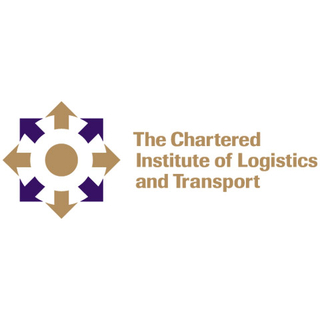MSc Operations Management
Skip to section
Key information
- Location
- Edinburgh
- Mode of delivery
- On-campus
- Delivery type
- Full-time, Part-time
- Start date
- September
- Duration
- 1 year
- Qualification
- MSc
Contact
Contact our enquiries team
Contact usOverview
Knowledge in operations management is an important requirement of managers across all business functions and there is an increasing demand for operations management specialists in every type of organisation.
This is a specialist MSc
MSc Operations Management is a specialist MSc programme led by academics at the Edinburgh Business School. As a specialist masters, this degree gives those who have worked in industry or studied a similar subject previously, the chance to expand, refine and enhance their knowledge.
This 1-year masters programme focuses almost entirely on the area of operations management. It blends cutting-edge academic thinking with best practice from industry to give graduates and professionals the opportunity to advance with a highly employable skillset.
The Edinburgh Business School approach
MSc Operations Management from the Edinburgh Business School at Heriot-Watt University develops critical understanding of the role operations management plays in relation to organisational performance and competitiveness.
This masters degree will build knowledge of operations management principles and concepts, and explore how they can be applied across different organisational functions including finance, sales, marketing, human resource management and design.
It will develop expertise in the use of various quality, process and supply chain management tools and techniques for analysing and improving operations in a wide range of industries including manufacturing, services, the public sector and the third sector.
On completion of the programme students are able to identify, conceptualise and define new problems and issues and have the ability to contribute towards the competitiveness of any organisation.
Programme duration
Full-time: 12 months (MSc), 9 months (PG Dip)
Part-time: 24 months (MSc), 21 months (PG Dip)
September 2024 entry
The deadline for applications from UK students is 30 August 2024. For EU and overseas applicants, we guarantee to consider applications submitted by 2 August 2024.
Course content
Year 1
Semester 1
- Operations Management and Planning
- Strategies for Managing Supply Chains
- Business Analytics and Big Data
Optional courses:
- Measuring and Managing Risk Performance
- Supply Chain Risk and Adaptation
- Strategic Innovation Management
Operations Management and Planning
Semester 1 (mandatory)
To understand the scope and importance of operations management, the role of operations managers and appreciate the interaction of operations on the
organisation, employees and customers. Key areas of focus include the linkages between process and operations design, business strategy and globalisation; the different elements of operations and how to analyse an operational environment in terms of these elements; and the challenges facing the operations manager to exploit innovative practices (e.g. 'lean') and technologies and deal with changing attitudes (e.g. CSR).
Strategies for Managing Supply Chains
Semester 1 (mandatory)
This course sets out the evolution of supply chain thinking and identifies the challenges faced by organisations. The nature and means of formulating business strategy is first identified before looking at the scope of supply chain strategic planning and the different perspectives of producers, retailers and logistics service providers.
Business Analytics and Big Data
Semester 1 (mandatory)
This course in Business Analytics will teach you how to use a wide range of analytical tools and techniques to solve real business problems and improve business performance. Increasingly employers expect management graduates to have practical data analysis skills to support decision-making in business.
Semester 2
- Quality Management and Engineering
- Research Philosophy and Practice
- Contemporary Business Technology
Optional courses:
- Systems Thinking and Analysis
- Big Data Analytics
- Project Management
Quality Management and Engineering
Semester 2 (mandatory)
Provides in-depth understanding of the principles, concepts, tools and techniques of quality management, quality engineering and continuous improvement together with awareness of how in practice these could be integrated to design and deliver an integrated continuous improvement programme. The module also aims to introduce students how to statistically plan, design and execute industrial experiments for process understanding and improvement in both manufacturing and service environments.
Research Philosophy and Practice
Semester 2 (mandatory)
Provides an understanding of the social science research process, as well as theory and approaches to research. Develops practical skills (i.e. quantitative and qualitative techniques) in data analysis to transform the raw data into information that guides marketing management valuations.
Contemporary Business Technology
Semester 2 (mandatory)
This course presents students with a core understanding of digital infrastructure of contemporary business and emerging technology. The course explores and covers theoretical concepts relating to IS and ICT, illustrated with real-life examples. The focus will be on the relationships between evolving and developing markets, products, and technologies. The course supports the development of a critical understanding amongst students of the decision-making process concerning the allocation of organisational resources (financial, legal, temporal, skill-related etc.) when implementing IS strategy.
Semester 3
Operations Management Dissertation
Academic Lead
The Academic Lead for this programme is Dr Florian Scheuring, Assistant Professor of Business Management. Before joining Heriot-Watt he has been working in the field of Operations Management for Royal Mail. Prior to these roles he covered roles in Distribution Management and Planning as well as Logistics Operations and Network Planning for Robert Bosch GmbH. His current research interests revolve around continuous improvement of operations and individuals alike by means of relationship performance management.
Go Global
Some of our Postgraduate Taught Masters Programmes are eligible for Inter-Campus Transfer. Please contact studywithus@hw.ac.uk for further information.
Fees and funding
Tuition fees
| Status [footnote 1] | Full-time | Part-time |
|---|---|---|
| UK | 9152 | 4576 |
| Overseas [footnote 2] | 20376 | 10188 |
Scholarships and bursaries
We aim to encourage well-qualified, ambitious students to study with us and we offer a wide variety of scholarships and bursaries to achieve this. Over £6 million worth of opportunities are available in fee and stipend scholarships, and more than 400 students benefit from this support.
View our full range of postgraduate scholarships.
Entry requirements
Entry
A good Honours degree (first or second class) or its non-UK equivalent in a relevant subject from a recognised British or overseas university.
Global College - successful completion of our one-year Pre-Masters Graduate Diploma in Business Studies or the four-month Pre-Masters (Accelerated).
English language requirements
If your first language is not English, or your first degree was not taught in English, we'll need to see evidence of your English language ability.
The minimum English language requirement for entry to this programme is IELTS 6.5 (or equivalent) with no component lower than 6.0.
If you do not have IELTS 6.5, we offer a range of English language courses to help you meet the English language requirement for this programme prior to commencing your studies:
- 20 weeks English (for IELTS of 5.0 with no skill lower than 4.5)
- 14 weeks English (for IELTS of 5.0 with minimum of 5.0 in writing and no skill lower than 4.5)
- 10 weeks English (for IELTS of 5.5 with no skill lower than 5.0)
- 6 weeks English (for IELTS 5.5 with no skill lower than 5.5)
Why Heriot-Watt?
Clubs and activities
At Heriot-Watt we have an extensive programme of over 90 sports clubs and societies to get involved in. You can try as many as you like or start one of your own!
Edinburgh campus accommodation
Living on our beautiful Edinburgh campus is a great way to meet others from all over the world. Our student accommodation is within easy reach of the teaching buildings, sports facilities, catering venues and the Student Union
Edinburgh Campus facilities
At Heriot-Watt University, we offer a wide range of services to help you deal with all aspects of your life with us, whether these be academic, personal, technical, financial or just plain fun!
Health and wellbeing
Student Wellbeing Services aim to provide a range of support, guidance, activities and advice to help students to be their best, and get the most from their university experience. From counselling to coaching we'll sure you are fully supported.
Heriot-Watt Student Union
There's more to university life than simply getting your degree, and Heriot-Watt University Student Union is all about helping you to have the best possible experience while you study here.
Living in Edinburgh
Historic and beautiful, a cultural capital that fuels the senses whether you love the arts or nature, nightlife or study life, Edinburgh is stimulating and inspirational and never, ever boring.
Sport facilities
Oriam, Scotland Sports Performance Centre offers state-of-the-art sports facilities, for all levels of sport and ability
Your career
Employers around the world actively seek out our graduates because they are work-ready. All our degrees are career-focused and relevant to the needs of industry. Around 95% of our students are in employment or further study within six months of graduating.
We are accredited by the following organisations
At Heriot-Watt University we develop degrees that are relevant for the world of work. We work with Professional bodies and Institutes to gain appropriate Accreditations and Professional Memberships for your industry. Find out below how this degree aligns to industry.

Chartered Institute of Logistics and Transport (CILT)
Students are eligible for an exemption from the academic requirements for membership at either Chartered Member or Member level of the CILT. There may also be a reduction in the length of experience that they would require.







